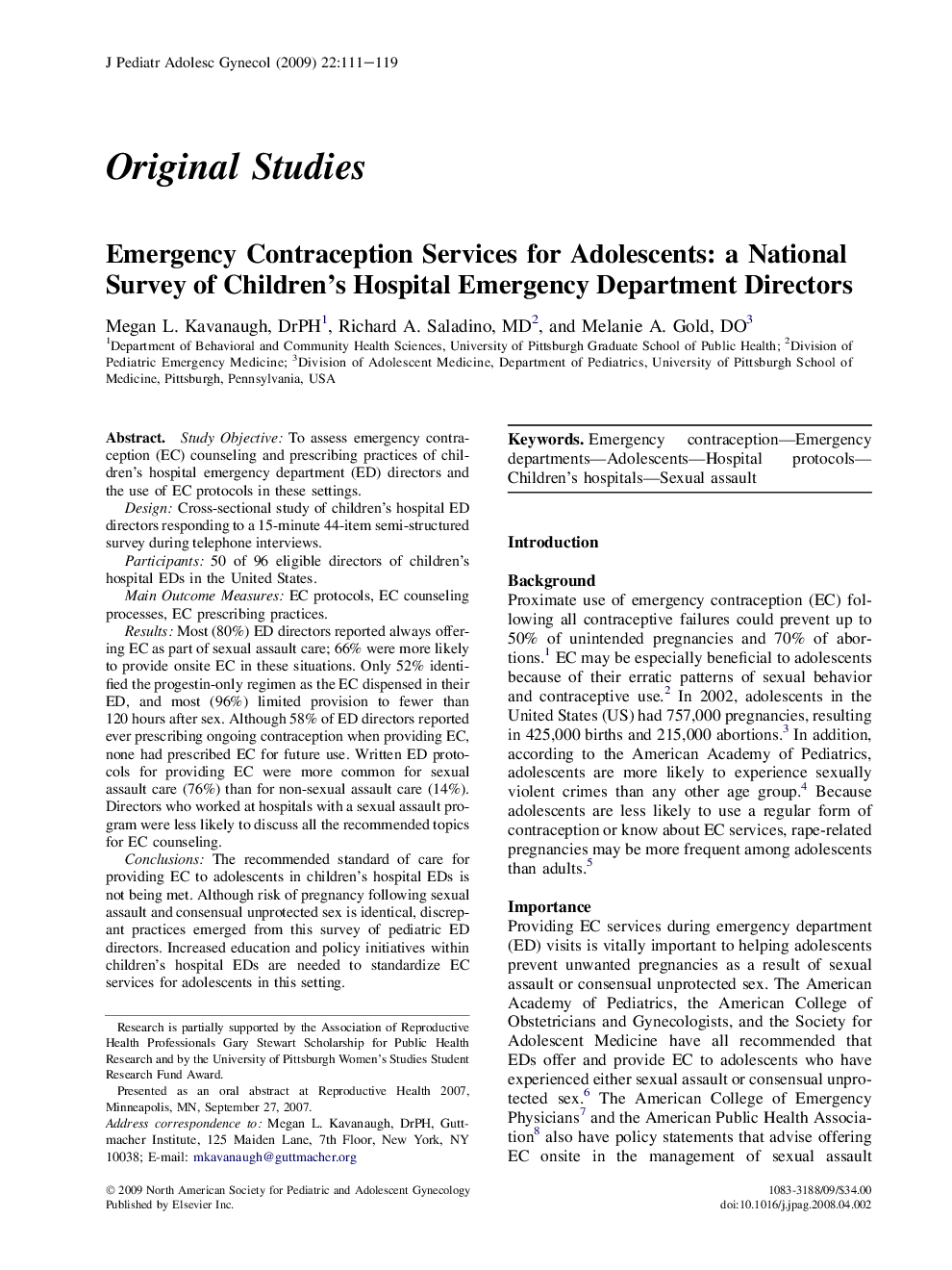| Article ID | Journal | Published Year | Pages | File Type |
|---|---|---|---|---|
| 3963347 | Journal of Pediatric and Adolescent Gynecology | 2009 | 9 Pages |
Study ObjectiveTo assess emergency contraception (EC) counseling and prescribing practices of children's hospital emergency department (ED) directors and the use of EC protocols in these settings.DesignCross-sectional study of children's hospital ED directors responding to a 15-minute 44-item semi-structured survey during telephone interviews.Participants50 of 96 eligible directors of children's hospital EDs in the United States.Main Outcome MeasuresEC protocols, EC counseling processes, EC prescribing practices.ResultsMost (80%) ED directors reported always offering EC as part of sexual assault care; 66% were more likely to provide onsite EC in these situations. Only 52% identified the progestin-only regimen as the EC dispensed in their ED, and most (96%) limited provision to fewer than 120 hours after sex. Although 58% of ED directors reported ever prescribing ongoing contraception when providing EC, none had prescribed EC for future use. Written ED protocols for providing EC were more common for sexual assault care (76%) than for non-sexual assault care (14%). Directors who worked at hospitals with a sexual assault program were less likely to discuss all the recommended topics for EC counseling.ConclusionsThe recommended standard of care for providing EC to adolescents in children's hospital EDs is not being met. Although risk of pregnancy following sexual assault and consensual unprotected sex is identical, discrepant practices emerged from this survey of pediatric ED directors. Increased education and policy initiatives within children's hospital EDs are needed to standardize EC services for adolescents in this setting.
